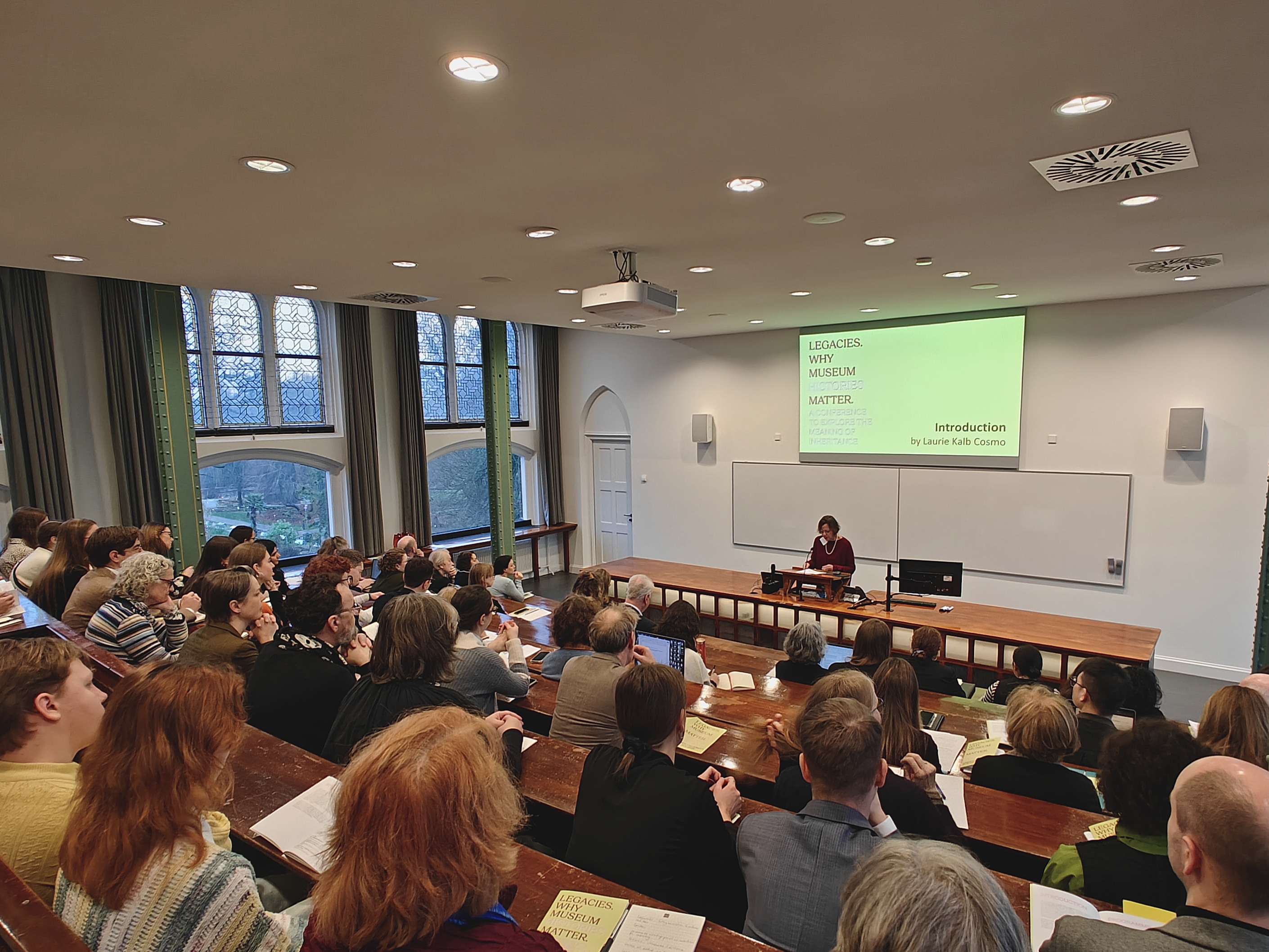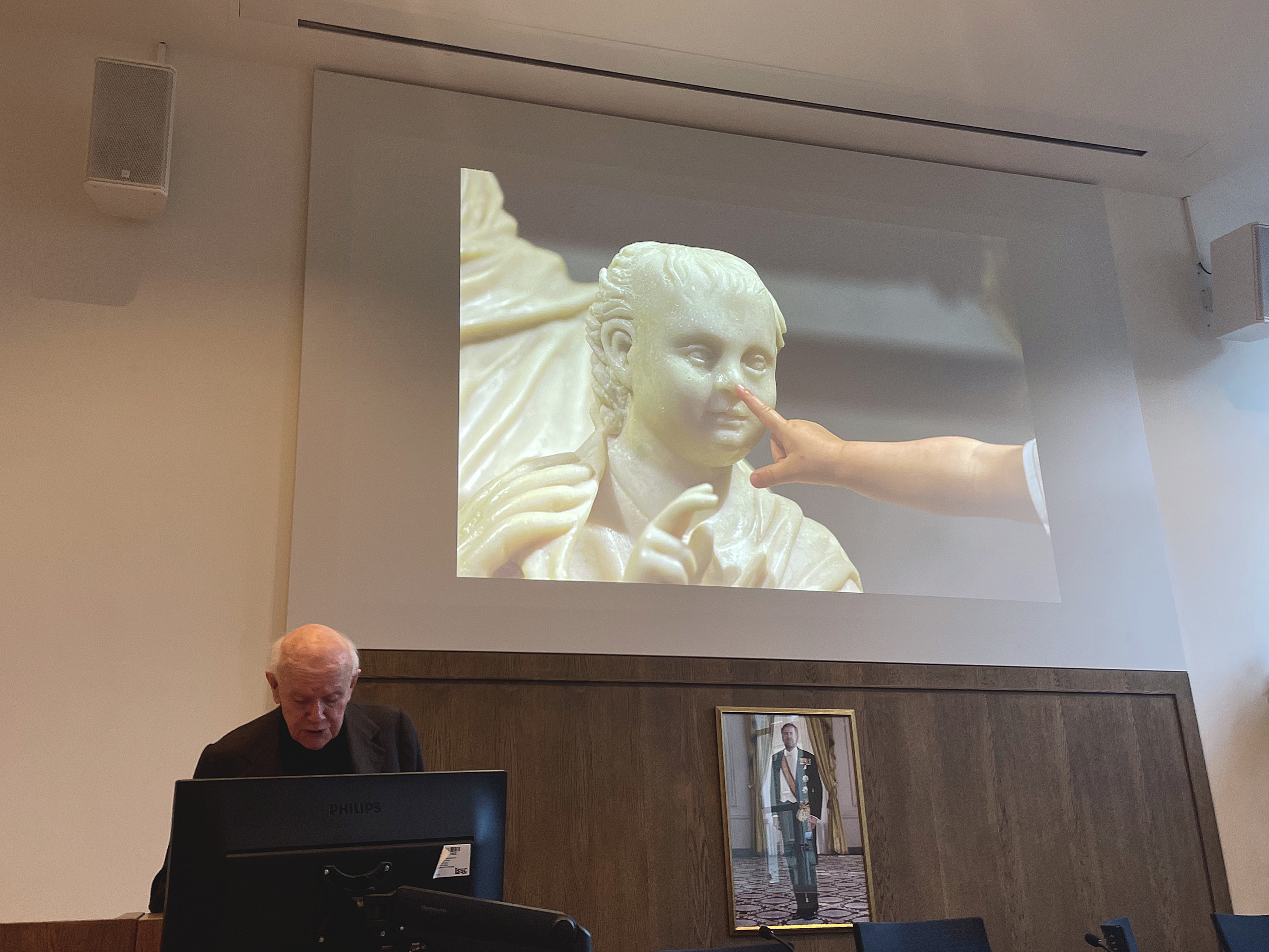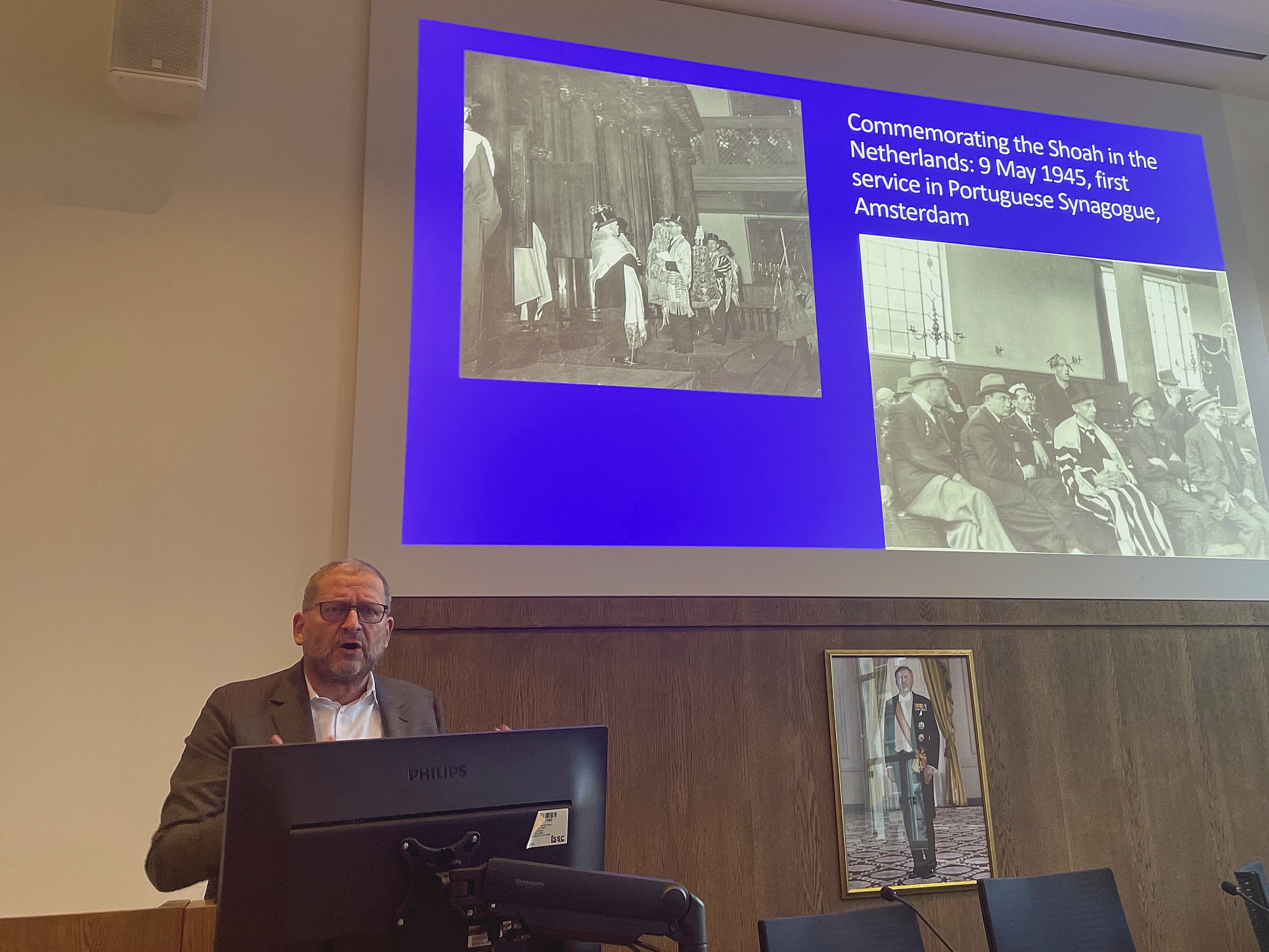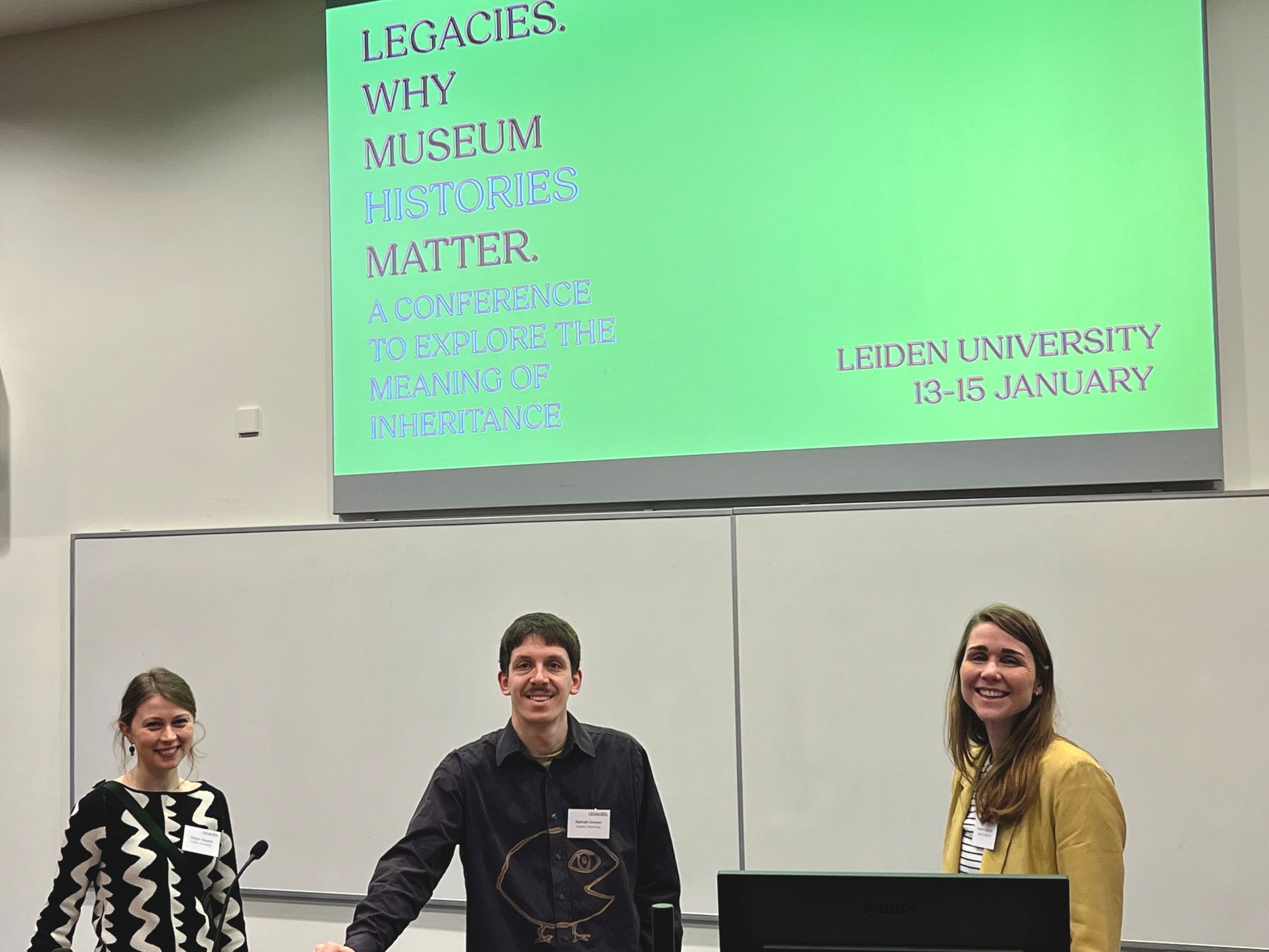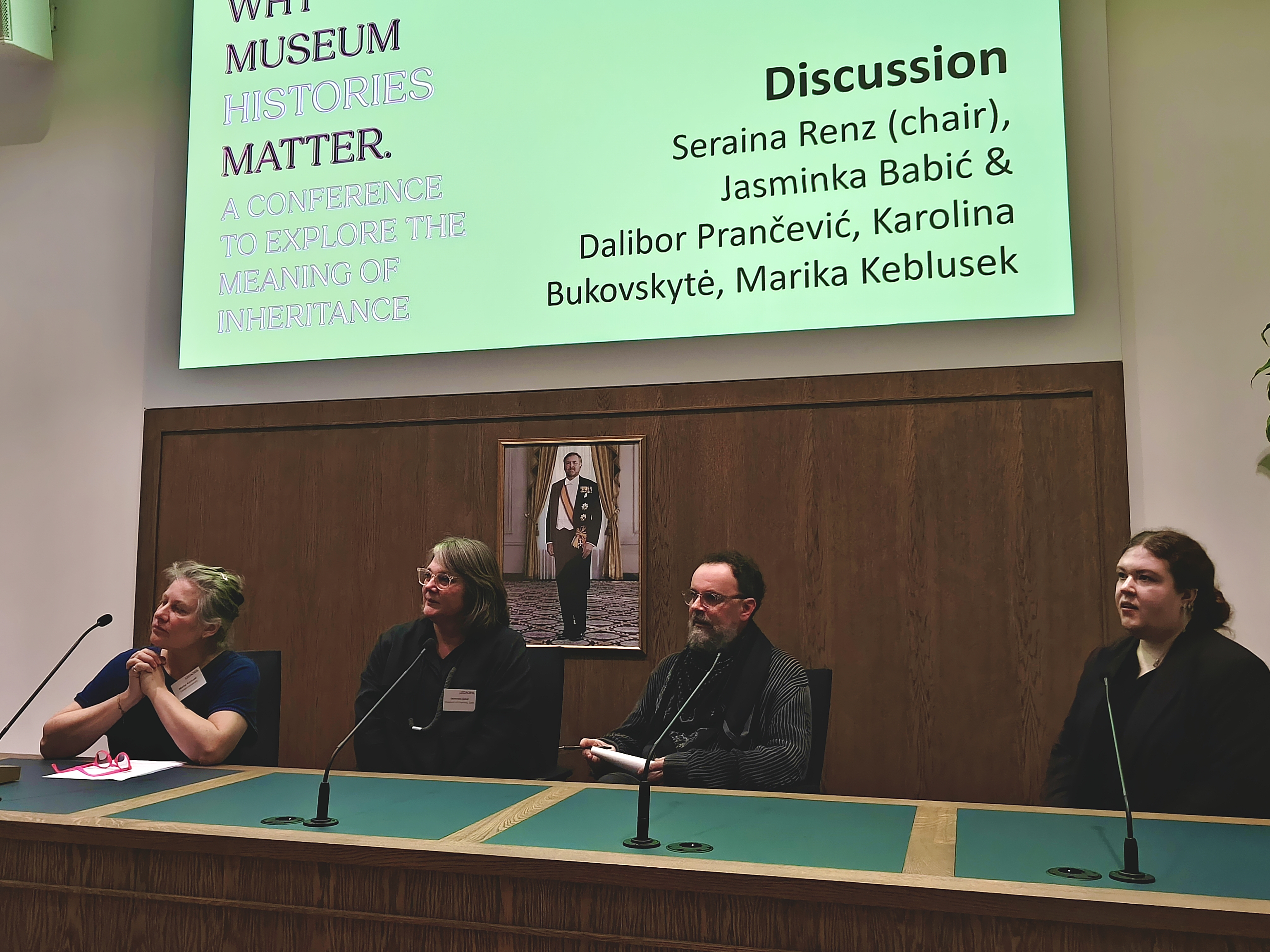Research project
Museum Lab
The Dutch museum landscape is among the most forward-thinking worldwide, in terms of innovations in engaging diverse audiences and stakeholders. Building on the museum studies and art history programmes at Leiden University, the Museum Lab explored conceptual and practical aspects of the museum as a powerful social and institutional body, in the past, present, and future.
- Duration
- 2024 - 2026
- Contact
- Laurie Kalb Cosmo
- Funding
- Dutch Ministry of Education Startersbeurs
- Partners
- Wereldmuseum Leiden
- Stichting Stolpersteine Amsterdam
- Foundation Herdenking Jodenvervolging Leiden
- Rijksmuseum Boerhaave
- Early Printed and Rare Books, Leiden University Library
- KNIR (Koninklijk Nederlands Instituut Rome)
- NIKI (Nederlands Interuniversitair Kunsthistorisch Instituut)
The project-based Leiden University Museum Lab, in coordination with the art history department at Leiden, took place from September 2024 to January 2026. It comprised three main projects: Enquiry-based learning Workshops for Students; the edited volume Benchmarks of Modernity: The Rise of Modern Art Museums in the 1930s Netherlands; and the international conference ‘Legacies: Why Museum Histories Matter. A conference to explore the meaning of inheritance’, convened in Leiden from 13 to 15 January 2026. A culminating event of the Museum Lab, the conference was informed by the edited volume Benchmarks of Modernity: The Rise of Modern Art Museums in the 1930s Netherlands and a lecture series organized at the KNIR (Royal Dutch Institute in Rome) titled ‘Roman Museum Legacies: Dialogues with Directors.’ All Museum Lab projects resulted from collaborations with Leiden University, Dutch university research institutes and museum and academic colleagues in the Netherlands and internationally.

Museum Lab Workshops
The Museum Lab Workshops invited students to engage in cutting-edge museum practices in ethics, collecting, display, technology, and interpretation by becoming active stakeholders in museum practices.
Developed in collaboration with a partner organisation, each enquiry-based workshop integrated into an existing course within the programmes of Arts, Media and Society (BA) and Museum Studies (MA). All four workshops were coordinated by Museum Lab postdoc Dr. Susanne Boersma with the participation of student assistants Raphaël Gerssen, Margot Stoppels and Sabina González Cosío Hagerman.
Workshops
- Presenting the wonders of early modern encyclopaedic collections in Leiden, facilitated by Dr. Marika Keblusek at the Leiden University Special Collections, on 25 February. This workshop integrated with the course ‘Collecting in the Contemporary Museum’, taught by Dr. Laurie Kalb Cosmo and Dr. Susanne Boersma.
- Commemoration in the city: Engaging with the Stolpersteine in Leiden and beyond, with Barbera Bikker and Arnold Schalks, Stichting Herdenking Jodenvervolging Leiden, on 7 and 9 May 2025. This workshop integrated with the course ‘AMS on Site: Curating the City’, taught by Dr. Steven Lauritano.
- Rethinking the Wereldmuseum Leiden through Indigeneity and Contemporary Art, with Prof. Dr. Wonu Veys, Wereldmuseum Leiden, on 2 April. This workshop integrated with the course ‘Art and the “Other”: Primitivism in Perspective’, taught by Dr. Talitha Schepers.
- Collecting sustainability and climate change for Rijksmuseum Boerhaave, with Prof. Dr. Ad Maas. Rijksmuseum Boerhaave, Leiden, on 24 April. This workshop integrated with the course ‘Core Course II: Art History and Curatorial Practice’, taught by Dr. Lieske Huits and Dr. Dick van Broekhuizen.
-

25 February: Museum Lab Workshop Presenting the wonders of early modern encyclopaedic collections in Leiden. -

25 February: Museum Lab Workshop Presenting the wonders of early modern encyclopaedic collections in Leiden. -

25 February: Museum Lab Workshop Presenting the wonders of early modern encyclopaedic collections in Leiden. -

25 February: Museum Lab Workshop Presenting the wonders of early modern encyclopaedic collections in Leiden. -

25 February: Museum Lab Workshop Presenting the wonders of early modern encyclopaedic collections in Leiden. -

2 April: Museum Lab Workshop Rethinking the Wereldmuseum Leiden through Indigeneity and Contemporary Art. -

2 April: Museum Lab Workshop Rethinking the Wereldmuseum Leiden through Indigeneity and Contemporary Art. -

2 April: Museum Lab Workshop Rethinking the Wereldmuseum Leiden through Indigeneity and Contemporary Art. -

2 April: Museum Lab Workshop Rethinking the Wereldmuseum Leiden through Indigeneity and Contemporary Art. -
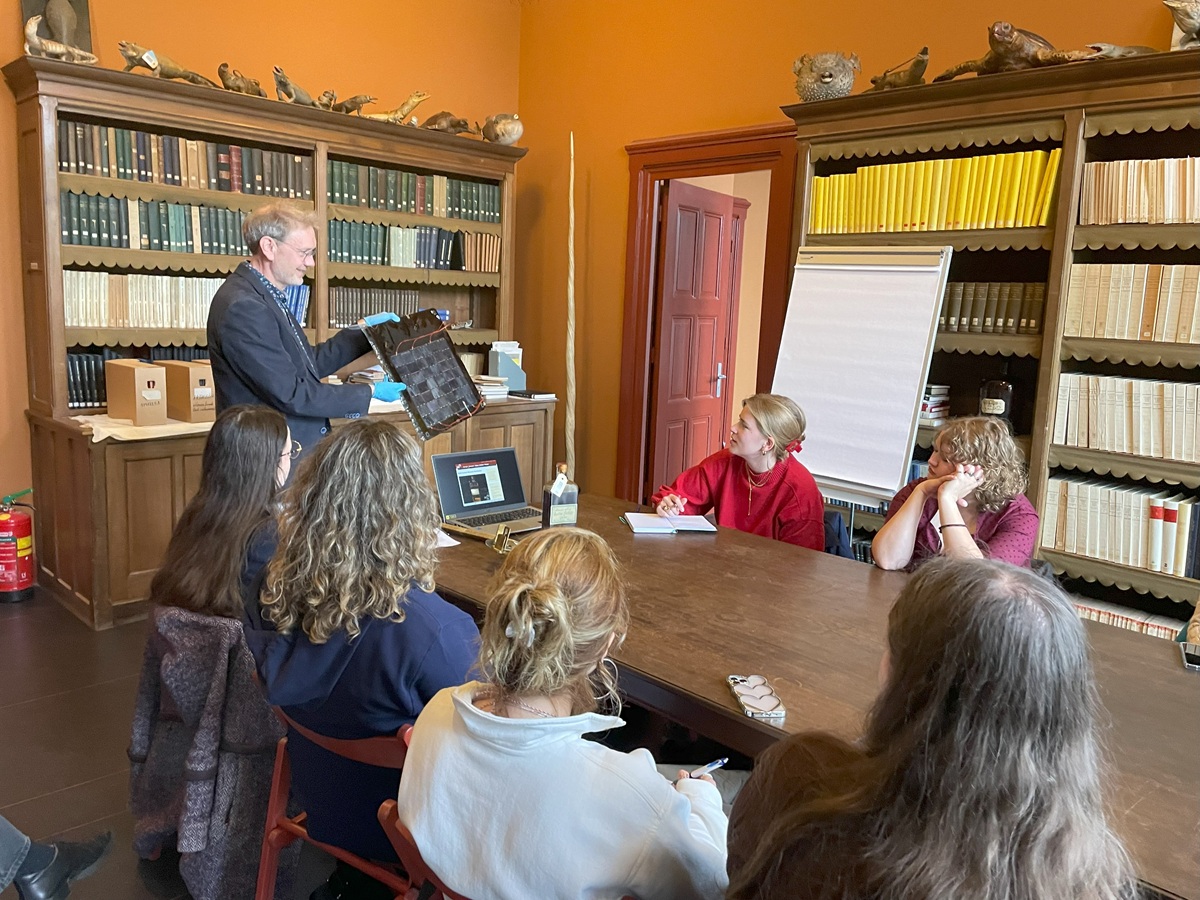
24 April: Museum Lab Workshop Collecting sustainability and climate change for Rijksmuseum Boerhaave. -
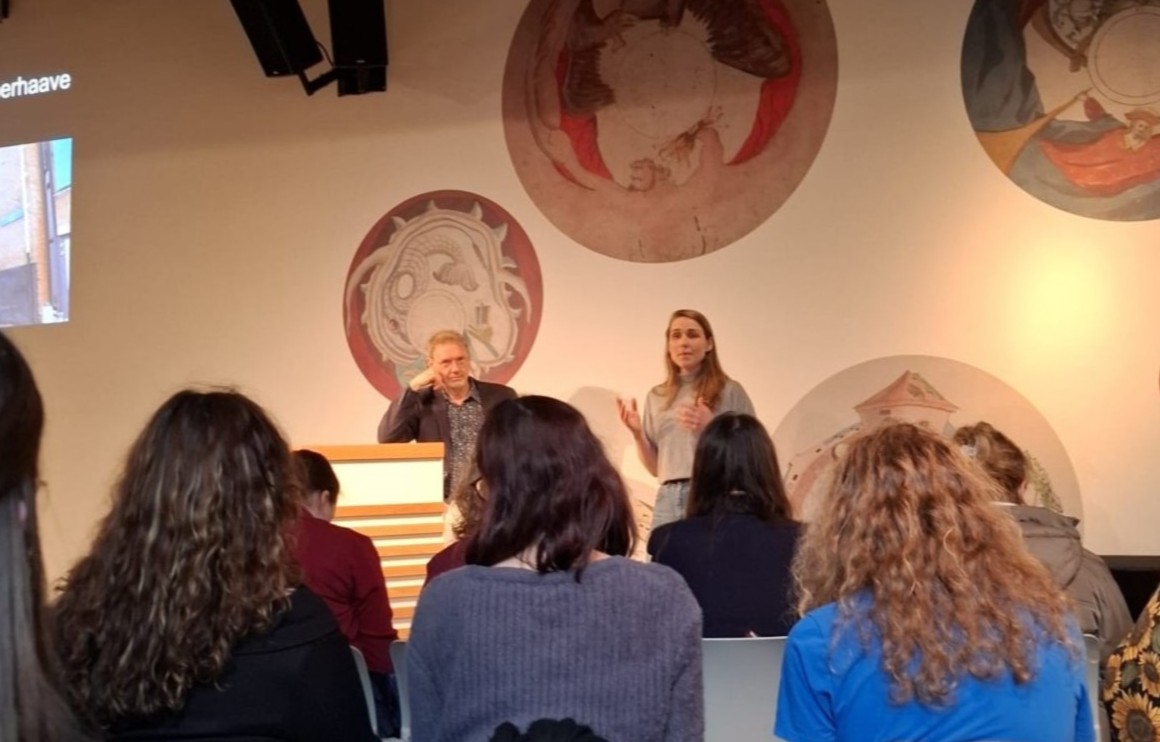
24 April: Museum Lab Workshop Collecting sustainability and climate change for Rijksmuseum Boerhaave. -
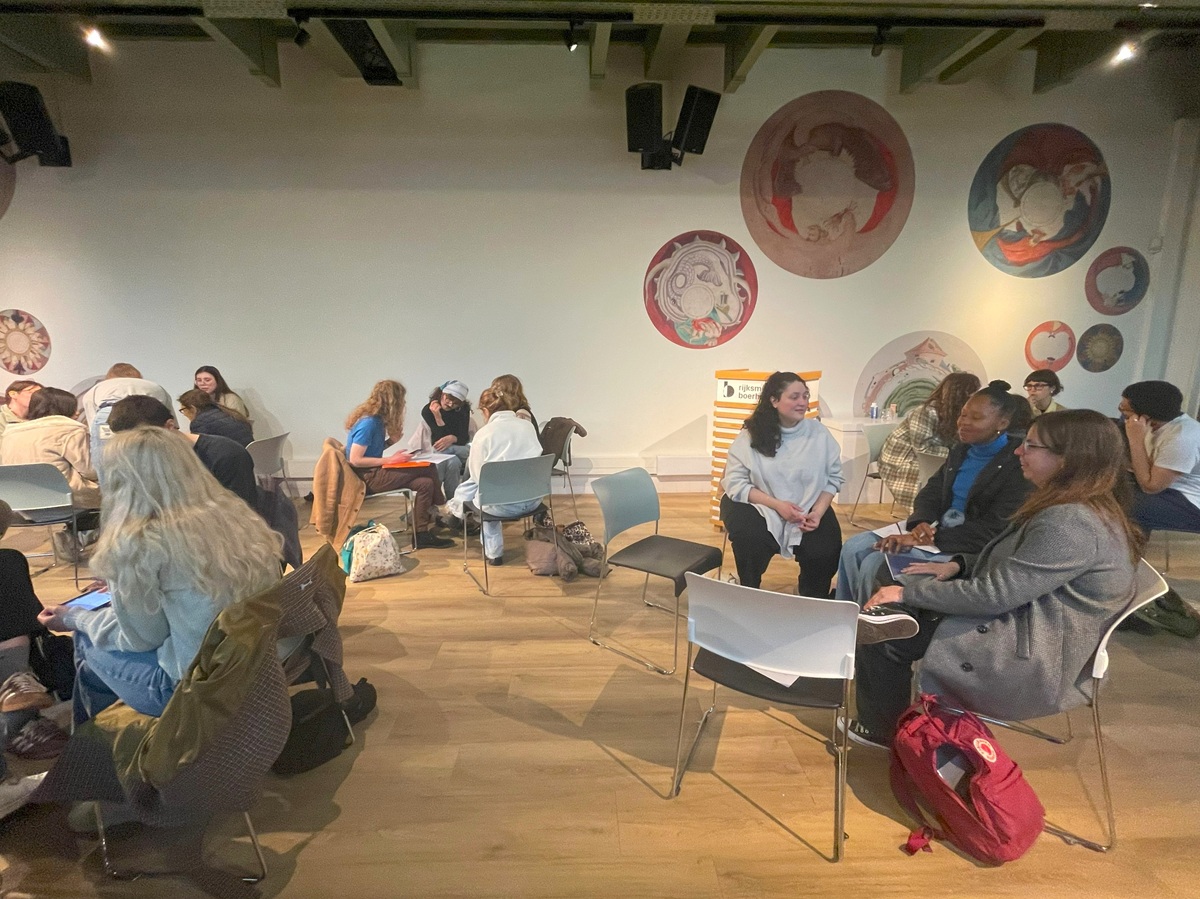
24 April: Museum Lab Workshop Collecting sustainability and climate change for Rijksmuseum Boerhaave. -
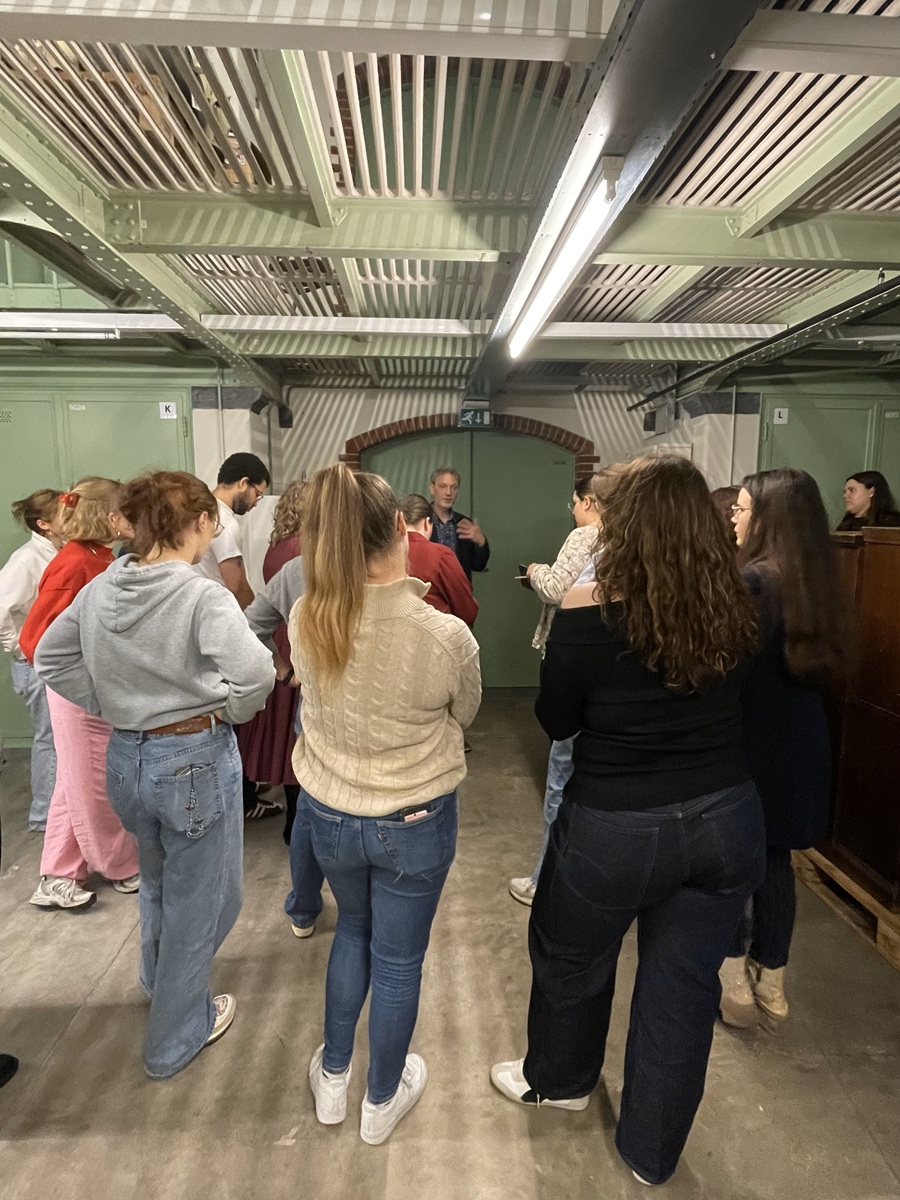
24 April: Museum Lab Workshop Collecting sustainability and climate change for Rijksmuseum Boerhaave. With Prof. Dr. Ad Maas. Rijksmuseum Boerhaave, Leiden. -
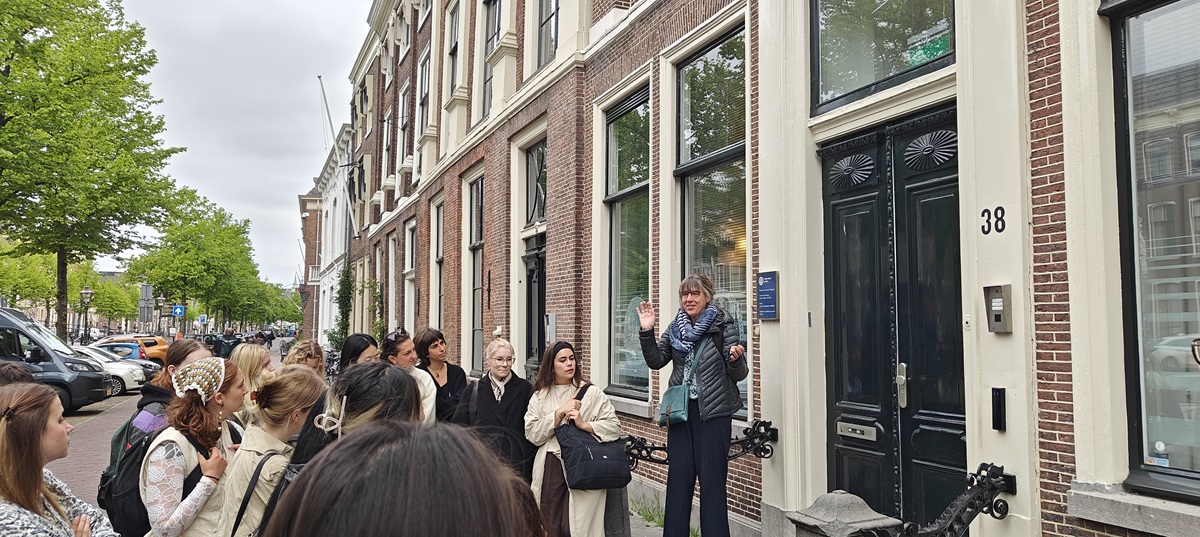
7 and 9 May: Museum Lab Workshop Commemoration in the city: Engaging with the Stolpersteine in Leiden and beyond. -
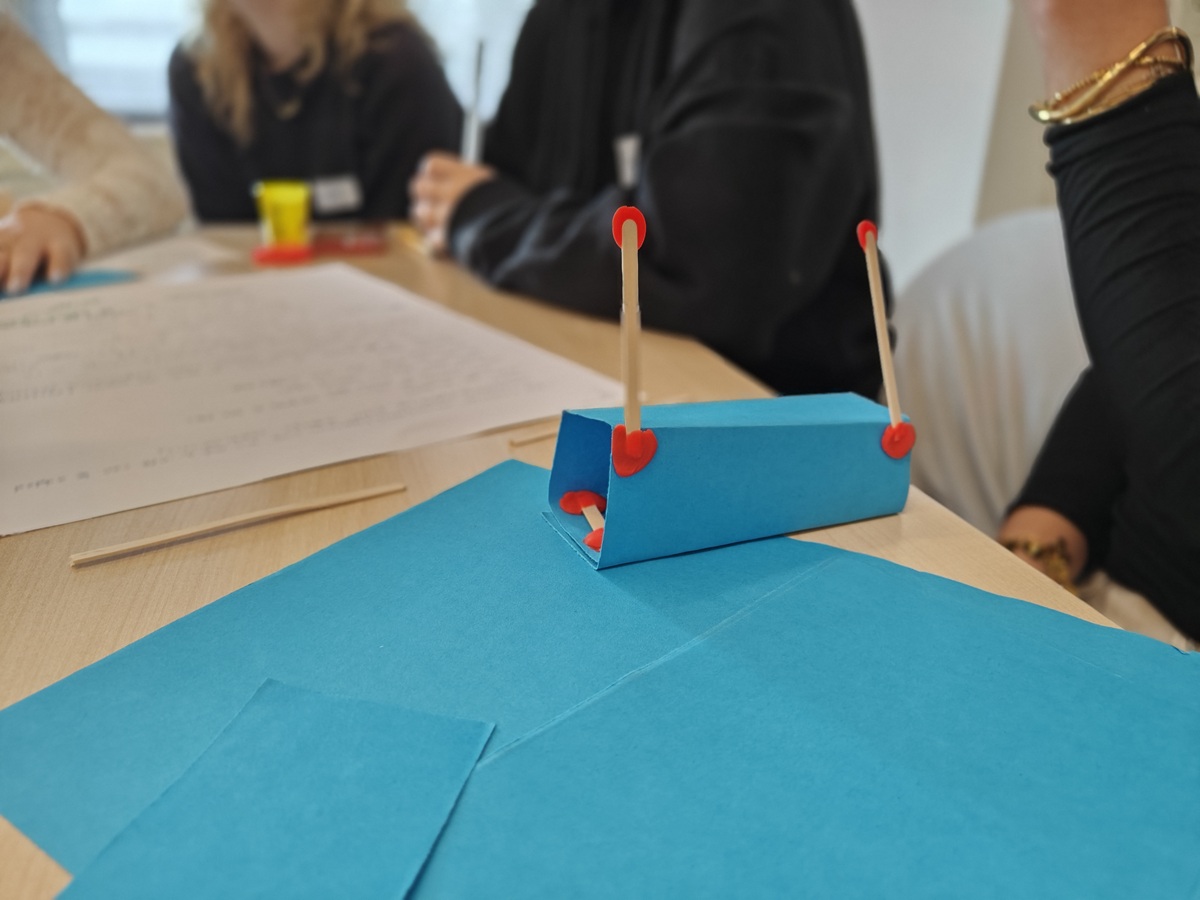
7 and 9 May: Museum Lab Workshop Commemoration in the city: Engaging with the Stolpersteine in Leiden and beyond. -
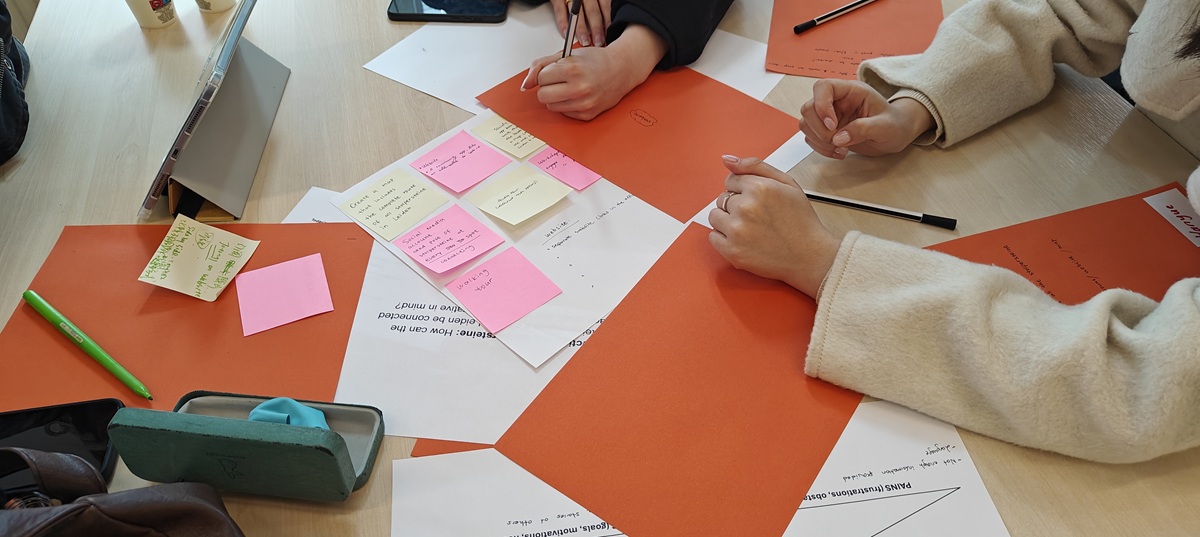
7 and 9 May: Museum Lab Workshop Commemoration in the city: Engaging with the Stolpersteine in Leiden and beyond. -
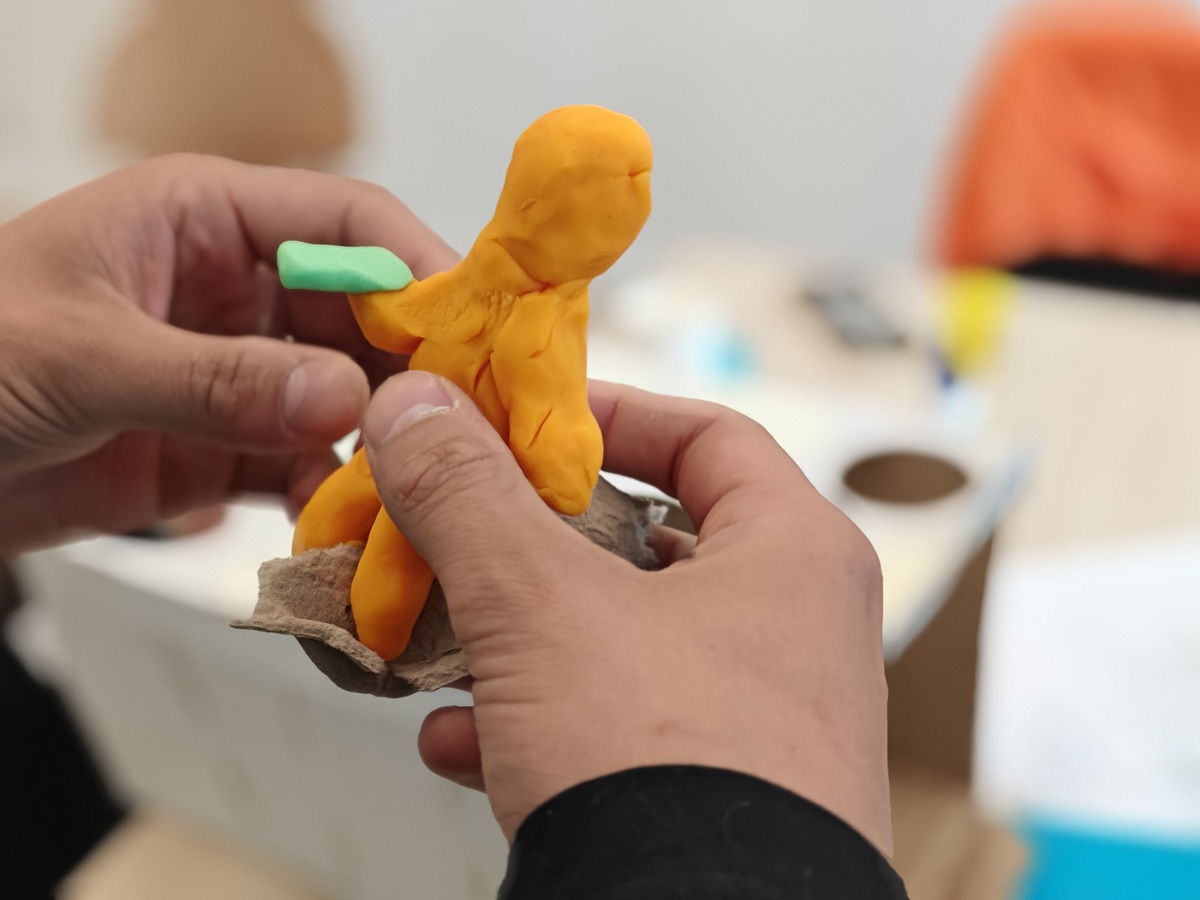
7 and 9 May: Museum Lab Workshop Commemoration in the city: Engaging with the Stolpersteine in Leiden and beyond.
Conference: 'Legacies: Why Museum Histories Matter'
A conference that explores the meaning of inheritance
13–15 January 2026, Leiden University, the Netherlands
In January 2026, Leiden University’s Museum Lab hosted the international conference ‘Legacies: Why Museum Histories Matter. A conference to explore the meaning of inheritance.’ The conference reflected on museums with significant founding histories, broadly defined by their buildings, collections, commemorative functions, collectors or founders, that are currently engaged in some manner of institutional introspection, by way of exhibitions, acquisitions, restitutions, or renovations. International researchers and museum professionals from a range of institutions presented their research and museum practices tied to museum legacies.
The three-day programme consisted of twelve panels and four keynote speeches by Dr. Carole Paul (University of California, Santa Barbara), Monsignor Dr. Timothy Verdon (Museo dell'Opera del Duomo, Florence), Prof. Dr. Emile Schrijver (Jewish Cultural Quarter and National Holocaust Museum, Amsterdam), and Dr. Andrew McClellan (Tufts University, Boston). It was followed by a fourth day of curator-led visits to Rijksmuseum Boerhaave (with curator Prof. dr. Ad Maas), Wereldmuseum Leiden (with curator Prof. Dr. Wonu Veys) and Rijksmuseum van Oudheden (with curator Dr. Toon Sykora). Also see the full programme, designed by postdoc Dr. Susanne Boersma.
Conference recordings
The conference was recorded in full and each part can be viewed via the links below. Upon request of the speakers, six presentations are omitted. The videos can be watched in full or navigated by selecting a speaker using the fourth button from the right in the bottom right corner of the screen. The view can be switched from screen to speaker and vice versa using the “change primary content” button directly next to that.
- Tuesday 13 January 2026 (morning), Introductions, Keynote and Panel I
- Tuesday 13 January 2026 (afternoon), Panel II to Panel IV
- Wednesday 14 January 2026 (morning), Keynotes and Panel V
- Wednesday 14 January 2026 (afternoon), Panel VI to Panel VIII
- Thursday 15 January 2026 (morning), Panel IX and Panel X
- Thursday 15 January 2026 (afternoon), Panel XI, Panel XII and Keynote
Impressions from the conference, including a view of the room during Dr. Laurie Kalb Cosmo’s introduction, a photo of Monsignor Dr. Timothy Verdon and one of Prof. Dr. Emile Schrijver, both taken during their keynote speeches, a photo of Margot Stoppels, Raphaël Gerssen and Susanne Boersma (Museum Lab Team), and a photo of the panel discussion of Panel VII.
Book: 'Benchmarks: The Rise of Modern Museums in the 1930s Netherlands'
In the 1930s, six modern art museums were founded in the Netherlands, each making a bold statement with new buildings, experimental art, and avant-garde displays. This rapid growth of modern museums in a small country on the edge of Nazi occupation is a unique European case. Focusing on Museum Boijmans Van Beuningen, Kröller-Müller Museum, Kunstmuseum Den Haag, Stedelijk Museum Amsterdam, Van Abbemuseum, and Museum for New Religious Art Utrecht, this book explores their ambitions, collections, and international connections that helped shape these important cultural institutions of the twentieth century.
The book is edited by Dr. Laurie Kalb Cosmo and Dr. Mary Bouquet (formerly Utrecht University), comprises of nine chapters, and contains an epilogue by Prof. Dr. Kitty Zijlmans (Emeritus Leiden University). Museum Lab team members and chapter author Dr. Susanne Boersma and co-author Margot Stoppels helped the editors to coordinate, proofread and correct the written materials. Publication of the edited volume by Berghahn Press (Oxford and New York) is planned for the end of 2026.
Research and Events
Public and conference talks
15 February 2025: Conference presentation by Laurie Kalb Cosmo, "Accommodating New Expressions and an Increasing Public Commitment to Art: The Emergence of Museums of Modern Art in the Netherlands" for Panel on "Presenting Contemporary Art in Museums, ca. 1880-1930: Temporary Exhibitions, Institutional Networks and Collecting,” at 113 Annual College Art Association, New York, NY USA.
15 January 2025: Public Lecture by Laurie Kalb Cosmo, “Liberation and Creativity: Jewish Artists and Philanthropists in Rome Between 1870 and 1938” at Museum Casa di Goethe Rome, in association with exhibition Max Liebermann: An Impressionist from Berlin.
Public lecture series ‘Roman Museum Legacies: Dialogues with Directors’ at the KNIR (Royal Dutch Institute Rome), May 2024 – October 2025*
29 October 2025: Roman Museum Legacies -- Dialogue with Prof. Fabio Benzi, scientific advisor to Casa Museo di Giorgio di Chirico (House Museum of Giorgio de Chirico). Moderated by Laurie Kalb Cosmo. KNIR (Koninklijk Nederlands Instituut Rome/Royal Dutch Institute in Rome). [Recording available]
9 April 2025: Roman Museum Legacies – Dialogue with dott.ssa Olga Melasecchi, director of Museo Ebraico di Roma (Jewish Museum of Rome). Moderated by Laurie Kalb Cosmo. KNIR (Koninklijk Nederlands Instituut Rome/Royal Dutch Institute in Rome). [Recording available]
22 November 2024: Roman Museum Legacies – Dialogue with dott.ssa Francesca Cappelletti, director of the Galleria Borghese. Moderated by Laurie Kalb Cosmo. KNIR (Koninklijk Nederlands Instituut Rome/Royal Dutch Institute in Rome).
18 September 2024: Roman Museum Legacies – Dialogue with Francesco Stocchi, Artistic Director of MAXXI. Moderated by Laurie Kalb Cosmo. KNIR (Koninklijk Nederlands Instituut Rome/Royal Dutch Institute in Rome). [Recording available]
28 May 2024: Roman Museum Legacies – Dialogue with Andrea Viliani, Director of the Museo delle Civiltà. Moderated by Laurie Kalb Cosmo. KNIR (Koninklijk Nederlands Instituut Rome/Royal Dutch Institute in Rome).
*The KNIR Roman Museum Legacies series was organized by Dr. Laurie Kalb Cosmo, as KNIR Museum Fellow (2003-2005) and NWIB Visiting Professor (April – June 2025), in coordination with Dr. Maria Bonaria Urban, Director of History at the KNIR.
Course excursion
3-9 November 2024: MA Museum Studies Excursion to the NIKI (Nederlands Interuniversitair Kunsthistorisch Instituut/Netherlands Interuniversity Institute for Art History) in Florence, Italy for the course Museums of the Future: Ethics, Responsibilities, and Practices (with funding from Leiden University Study Abroad), taught by Dr. Laurie Kalb Cosmo
Research
Susanne Boersma: Expanded research into the Hindeloopen rooms
During her postdoc at the Museum Lab, Dr. Susanne Boersma expanded on earlier research into the Hindeloopen room in the collection of the Museum Europäischer Kulturen and studied the rooms and objects currently present in Dutch museum collections. This study addresses the presented and known contexts of the Hindeloopen rooms, the people involved in their making and collecting, and the interpretation of these rooms as local and national heritage.
Susanne Boersma, ‘Period Rooms at the 1935 Haags Gemeentemuseum – Curatorial Principles of a Heterogeneous Modernity’, in Benchmarks of Modernity: The Rise of Modern Art Museums in the 1930s Netherlands, edited by Laurie Kalb Cosmo and Mary Bouquet (in press at Berghahn Books)
This chapter reflects the different curatorial principles, ranging from ‘white cube’ to period room displays, in the 1935 building of the Haags Gemeentemuseum, designed by Berlage and led by museum director Van Gelder. Through a study of the museum’s period rooms as part of larger developments in the museum field, this chapter reveals how the interiors represent the revised ideals, related to authenticity and subjectivity, which defined the modern museum.
Raphaël Gerssen, A 20th Century Stone Age Colonial Collection in the Wereldmuseum Leiden: The ‘Franssen Collection’ and its Biography [MA Thesis]
This study researched the history of an overlooked colonial stone tool collection in the Wereldmuseum Leiden. It concerns the “Franssen” collection, a large assemblage of 1239 stone tools collected by Dr. Caspar Franssen. Franssen was a Dutch entomologist who lived, worked, and collected in colonial Indonesia between 1929 and 1950. The goal of this research was to reconstruct the biography of this collection, including the provenance of its artefacts and the colonial context in which it was collected. In doing so, the thesis takes a critical look at the meaning and value of decontextualized stone tool collections from Indonesia, of which many are present in museums around the world.
Edward Grasman, Laurie Kalb Cosmo and Margot Stoppels, ‘Temporary Exhibitions in the Haags Gemeentemuseum during the Interbellum – Before and after Berlage’, in Benchmarks of Modernity: The Rise of Modern Art Museums in the 1930s Netherlands, edited by Laurie Kalb Cosmo and Mary Bouquet (in press at Berghahn Books)
This co-authored chapter addresses the exhibitions organized at the Haags Gemeentemuseum between the opening of Berlage’s building in 1935 and the outbreak of the Second World War. In various ways, these expositions reflect the unique character of The Hague, a city that did not grow within walls it finally outgrew and that developed an international character without ever having been a commercial centre.
Margot Stoppels, Wonder Trouble: Searching for 'verwondering' in science museums [Dual MA and ResMA Thesis]
This dual thesis, supervised by Prof. Dr. Ad Maas and Prof. Frans-Willem Kortsen and completed in 2025, investigates how verwondering (wonder) is increasingly centralized and operationalized in Dutch science museums. Often framed as a universal affect in museums and society, verwondering is tensely situated as both a cultural remedy and an economic resource across political, educational, and promotional contexts.
Margot Stoppels, Ph.D. proposal public science display in the Netherlands between 1945-2000
Margot Stoppels is currently preparing a Ph.D. proposal that examines how science exhibitions and museums in the Netherlands underwent fundamental change between 1945 and 2000. It explores how museums, industry, and the state helped shape shifts from ‘hand-off’ to ‘hands-on’ displays, and how they demonstrate changing ideas of the public and the role of science communication in postwar society.
Sabina González Cosío Hagerman, Restitution Beyond Materiality: The Struggle of Mexican Identity and the Dispossession of Moctezuma’s Headdress [BA Thesis]
This thesis delves into the restitution debate of Moctezuma’s Headdress as a case study to analyse the convergence of cultural heritage, identity, and post-colonial power dynamics in the museum. The study examines failed restitution claims through museum studies and legal perspectives, addressing the imperialist legacy that permeates Western cultural institutions. It also explores the role of the Headdress in settling Mexico’s Indigenous and mestizo identities, revealing some of the complications within the nation’s broken decolonisation process.

